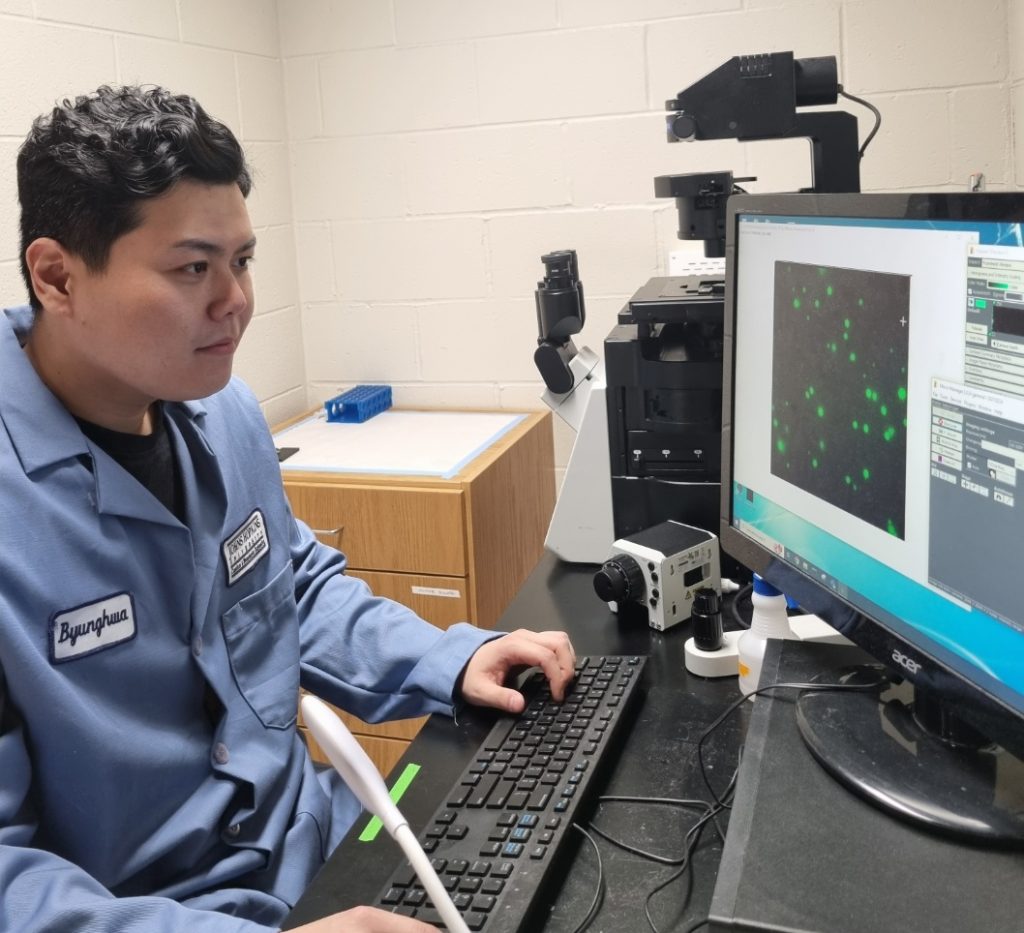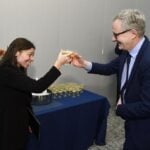Byunghwa Kang awarded Human Frontier Science Program Fellowship

Johns Hopkins postdoctoral researcher, Byunghwa Kang, is one of 50 postdoctoral fellows to be awarded a fellowship from the Human Frontier Science Program, an international coalition of over 15 countries dedicated to supporting scientific excellence in the life sciences. The fellowship supports scientists who want to broaden their research skills in a new field outside their home country.
HFSP awarded Kang the Cross-Disciplinary Fellowship, which provides three years of financial support to people with non-biological doctoral degrees that want life science training. Kang has a PhD in materials science and engineering from Pohang Science and Technology University in South Korea. He received the award to study how biomolecular condensates, membraneless and liquid-like structures in our cells, control important chemical reactions, under Rebecca Schulman’s mentorship.
“Biomolecular condensates control over thousands of biochemical reactions inside our cells. However, it’s been elusive to researchers how they control catalytic rates in cells,” said Kang.
Kang believes that biomolecular condensates have non-equilibrium or far-from equilibrium conditions that control the catalytic reactions. With assistance from Schulman, core researcher at the Institute for NanoBioTechnology and associate professor of chemical and biomolecular engineering, Kang will create a synthetic biomolecular model system that is controlled by non-equilibrium conditions to observe what happen in these catalytic reactions.
“HFSP postdoctoral fellowships are competitive awards and having received one has given me a lot of motivation and confidence to pursue my research ideas,” said Kang.
Latest Posts
-
 Cellular building blocks may enable new understanding of the body’s “machinery”
December 19, 2025
Cellular building blocks may enable new understanding of the body’s “machinery”
December 19, 2025
-
 Biomedical Engineer Jamie Spangler Receives President’s Frontier Award
December 15, 2025
Biomedical Engineer Jamie Spangler Receives President’s Frontier Award
December 15, 2025
-
 Johns Hopkins Postdoc Named in Forbes `30 Under 30′ List
December 8, 2025
Johns Hopkins Postdoc Named in Forbes `30 Under 30′ List
December 8, 2025


